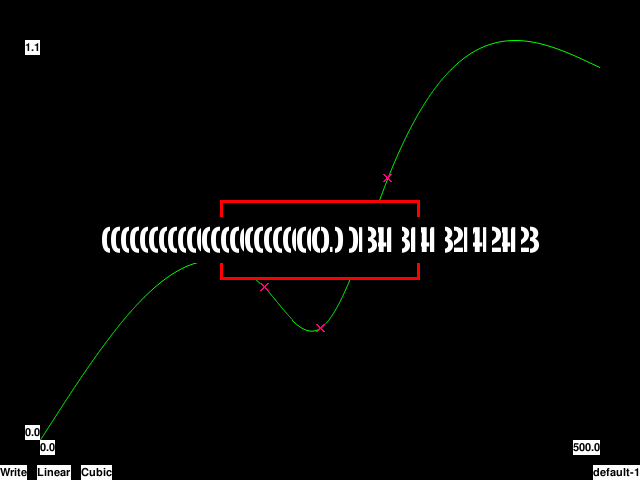January 28, 2014♦

☀
E
F
F
L
U
E
N
C
E
☀
<?php
header("Content-type: text/xml");
define("ROOT", "../../../../../../users/");
define("LEVEL_IDS_FILE_NAME", "level_ids");
define("FIELD_SEPARATOR", "|");
define("FILE_SPECIAL_CHARACTER", "_");
define("LEVEL_FILE_EXTENSION", ".xml.gz");
$id = $_GET["id"];
$path = build_path($id);
if (!file_exists($path))
{
$path = str_replace(".gz", "", $path);
}
ob_start();
readgzfile($path);
ob_end_flush();
function build_path($id)
{
$entry = file_read_line($id);
$fields = explode(FIELD_SEPARATOR, $entry);
$user = $fields[0];
$file_name = convert_name($fields[1]) . LEVEL_FILE_EXTENSION;
$path = ROOT . $user . "/levels/" . $file_name;
return $path;
}
function file_read_line($line)
{
$path = ROOT . "/" . LEVEL_IDS_FILE_NAME;
$levels = file($path);
return trim($levels[$line - 1]);
}
function convert_name($name)
{
$name = preg_replace("/[^a-zA-Z0-9]{1}/", FILE_SPECIAL_CHARACTER, $name);
return strtolower($name);
}
EVR.Level.Summary.Time = function(container, level)
{
this.container = container;
this.level = level;
this.set();
}
EVR.Level.Summary.Time.prototype.set = function()
{
var level = this.level;
var container = this.container;
var relative = level.container;
var font = TIME_FONT;
var color = this.determine_color();
var size = TIME_FONT_SIZE;
var text = level.history.get_newest().time;
this.text = new EVR.Text(container, text, font, color, size, relative);
this.set_line_height();
this.text.css.overflow = "visible";
var style = container.style;
style.verticalAlign = "middle";
style.paddingLeft = TIME_PADDING;
style.letterSpacing = TIME_LETTER_SPACING;
style.overflow = "visible";
}
EVR.Level.Summary.Time.prototype.determine_color = function()
{
if (this.level.goal_cleared())
{
return TIME_CLEAR_FONT_COLOR;
}
return TIME_FAIL_FONT_COLOR;
}
EVR.Level.Summary.Time.prototype.set_line_height = function()
{
var text = this.text;
var height = text.get_font_size();
height -= height * TIME_LINE_HEIGHT_MODIFIER;
text.set_line_height(height);
}
EVR.Level.Summary.Time.prototype.draw = function()
{
this.text.set_font_size();
this.set_line_height();
}
EVR.Level.Summary.Time.prototype.toString = function()
{
return "[object EVR.Level.Summary.Time]";
}
EVR.Level.Summary.Goal = function(container, level)
{
this.container = container;
this.level = level;
this.set();
}
EVR.Level.Summary.Goal.prototype.set = function()
{
var level = this.level;
var container = this.container;
var string = this.get_goal_string();
var family = GOAL_FONT_FAMILY;
var color = GOAL_FONT_COLOR;
var size = GOAL_FONT_SIZE;
var relative = level.container;
this.text = new EVR.Text(container, string, family, color, size, relative);
this.set_attributes();
}
EVR.Level.Summary.Goal.prototype.get_goal_string = function()
{
var level = this.level;
var goal, text;
if (level.is_clear())
{
goal = level.advanced;
text = GOAL_ADVANCED_TEXT;
}
else
{
goal = level.goal;
text = GOAL_TEXT;
}
return text + " " + goal.toString(0, 1);
}
EVR.Level.Summary.Goal.prototype.set_attributes = function()
{
var text = this.text;
text.set_color(GOAL_BACKGROUND);
text.css.textAlign = GOAL_TEXT_ALIGN;
text.css.letterSpacing = GOAL_LETTER_SPACING;
text.css.marginTop = GOAL_MARGIN;
text.css.padding = GOAL_PADDING + " 0";
}
EVR.Level.Summary.Goal.prototype.draw = function()
{
this.text.set_font_size();
}
EVR.Level.Summary.Goal.prototype.toString = function()
{
return "[object EVR.Level.Summary.Goal]";
}
EVR.Level.Summary.Accuracy = function(container, level)
{
this.container = container;
this.field = level.container;
this.path = level.road.path;
this.history = level.history;
this.align();
this.add_heading();
this.add_accuracy();
}
EVR.Level.Summary.Accuracy.prototype.align = function()
{
var style = this.container.style;
style.verticalAlign = "middle";
style.textAlign = "center";
}
EVR.Level.Summary.Accuracy.prototype.add_heading = function()
{
var cell = this.container;
var text = ACCURACY_HEADING;
var font = ACCURACY_HEADING_FONT;
var size = ACCURACY_HEADING_FONT_SIZE;
var color = ACCURACY_FONT_COLOR;
var heading = new EVR.Text(cell, text, font, color, size, this.field);
heading.css.textDecoration = ACCURACY_HEADING_TEXT_DECORATION;
heading.css.letterSpacing = ACCURACY_HEADING_LETTER_SPACING;
heading.css.backgroundColor = ACCURACY_BACKGROUND_COLOR;
heading.css.borderBottom = ACCURACY_HEADING_BORDER;
this.heading = heading;
}
EVR.Level.Summary.Accuracy.prototype.add_accuracy = function()
{
var cell = this.container;
var size = ACCURACY_FONT_SIZE;
var text = this.history.get_newest().accuracy;
var font = ACCURACY_FONT;
var color = ACCURACY_FONT_COLOR;
var accuracy = new EVR.Text(cell, text, font, color, size, this.field);
accuracy.css.fontWeight = ACCURACY_FONT_WEIGHT;
accuracy.css.letterSpacing = ACCURACY_LETTER_SPACING;
accuracy.css.backgroundColor = ACCURACY_BACKGROUND_COLOR;
accuracy.css.padding = "0 " + ACCURACY_PADDING + "px";
this.accuracy = accuracy;
}
EVR.Level.Summary.Accuracy.prototype.draw = function()
{
this.heading.set_font_size();
this.accuracy.set_font_size();
}
EVR.Level.Summary.Accuracy.toString = function()
{
return "[object EVR.Level.Summary.Accuracy]";
}
EVR.include("level/summary/Accuracy.js");
EVR.include("level/summary/Time.js");
EVR.include("level/summary/Goal.js");
EVR.include("level/summary/comparison/Comparison.js");
EVR.include("level/summary/graph/Graph.js");
EVR.Level.Summary = function(level)
{
EVR.Table.call(this, level.road, "1%", "100%");
level.road.set_color(SUMMARY_BACKGROUND);
this.level = level;
this.row = this.insert_row();
this.add_finish_line();
this.add_widgets();
this.append();
}
EVR.Level.Summary.prototype = new EVR.Table;
EVR.Level.Summary.prototype.add_finish_line = function()
{
var road = this.container;
var finish_line = new EVR.Level.Road.Path.Line(road, LINE_FINISH);
finish_line.place(SUMMARY_FINISH_LINE_OFFSET);
finish_line.append();
this.finish_line = finish_line;
}
EVR.Level.Summary.prototype.add_widgets = function()
{
var level = this.level;
var cell = this.insert_cell();
this.accuracy = new EVR.Level.Summary.Accuracy(cell, level);
this.goal = new EVR.Level.Summary.Goal(cell, level);
this.graph = new EVR.Level.Summary.Graph(this.insert_cell(), level);
this.comparison = new EVR.Level.Summary.Comparison(this.row, level);
this.time = new EVR.Level.Summary.Time(this.insert_cell(), level);
}
EVR.Level.Summary.prototype.draw = function()
{
this.comparison.draw();
this.time.draw();
this.goal.draw();
this.accuracy.draw();
this.graph.draw();
this.finish_line.draw();
}
EVR.Level.Summary.prototype.toString = function()
{
return "[object EVR.Level.Summary]";
}